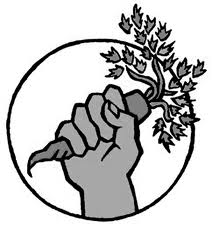“I have the audacity to believe that people everywhere can have three meals a day for their bodies, education and culture for their minds, and dignity, equality and freedom for their spirits.”
— Dr. Martin Luther King, Jr., in his Nobel Prize acceptance speech
These words remind me how far we’ve come on some justice and equality issues, and how far we’ve yet to go on many others, such as the one Dr. King mentions first, food justice. The concept of food justice has evolved to cover much more than ensuring three meals a day. It now includes the quality of those meals, and has been extended to include how that food comes to the table, including the treatment of workers, animals, and the soil, air, and water we all share.
According to the educational nonprofit Just Food: “Food Justice is communities exercising their right to grow, sell, and eat healthy food. Healthy food is fresh, nutritious, affordable, culturally-appropriate, and grown locally with care for the well-being of the land, workers, and animals. People practicing food justice leads to a strong local food system, self-reliant communities, and a healthy environment.”
Those “self-reliant communities” are part of what Dr. King most likely had in mind when he said, “True compassion is more than flinging a coin to a … beggar. It comes to see that the edifice which produces beggars needs restructuring.” Dr. King was committed to non-violent and systemic transformation of the policies and institutions that breed poverty and hunger. If he were with us today, I imagine that he would not only be protesting against the industrial food conglomerates that invade the poorest neighborhoods, and the healthy food stores that avoid them. He would also be working to reverse the entrenched government policies and corporate power that make highly processed “junk food” more affordable than fresh healthy foods.
At the same time, I’m sure Dr. King would be encouraging each one of us to take matters into our own hands, making nutritious whole foods available to ourselves and our communities. There is a saying in Hawaii that the person whose hand is palm up will always be hungry, but the person whose hand is palm down (planting a seed, tending a garden) will never be hungry.
So during this Martin Luther King Week, think about what you can do to help foster food justice. You might volunteer at a food bank, work with stores, restaurants, and cafeterias to eliminate food waste (approximately half of the food in the U.S. is wasted), or grow some of your own food and get more from local farmers. Whether it’s one tomato plant or basil plant outside your back door, a big garden plot, a CSA membership, or weekly trips to your local farmers market, take the first step toward food justice today.
Further Reading on Food Justice:



